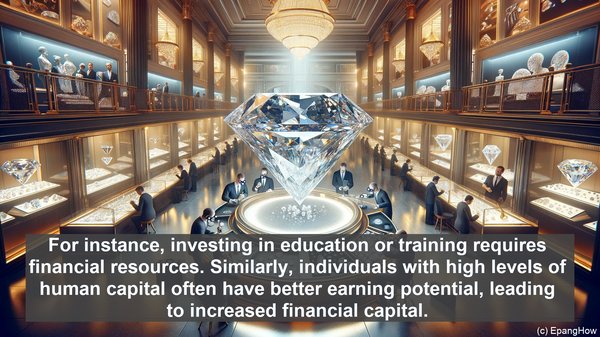Introduction: The Foundation of Modern Economy
Hello everyone! Welcome to our article on the difference between financial capital and human capital. When we discuss the dynamics of our economy, these two terms frequently emerge. But what do they truly signify? Let’s dive in!
Defining Financial Capital: The Monetary Backbone
Financial capital refers to the monetary resources, assets, or funds that individuals, businesses, or governments possess. It encompasses tangible assets like cash, investments, and property, as well as intangible assets like stocks and bonds. Financial capital is often seen as a measure of wealth and forms the basis for various economic activities, such as investment, lending, and business operations.
Unpacking Human Capital: The Power of Knowledge and Skills
On the other hand, human capital represents the knowledge, skills, expertise, and capabilities that individuals acquire through education, training, and experience. It encompasses not just formal qualifications but also the ability to innovate, problem-solve, and adapt. Human capital is often seen as the driving force behind productivity, economic growth, and innovation. It’s the collective skills and talents of a workforce that determine a nation’s competitiveness in the global market.
The Interplay: How Financial and Human Capital Connect
While financial capital and human capital may seem distinct, they are intricately connected. Financial capital can be seen as a means to acquire and enhance human capital. For instance, investing in education or training requires financial resources. Similarly, individuals with high levels of human capital often have better earning potential, leading to increased financial capital. Moreover, businesses that invest in their employees’ skills and knowledge often reap long-term financial benefits through enhanced productivity and innovation.

Evolving Dynamics: The Changing Significance
In the past, financial capital was often seen as the primary driver of economic growth. However, in today’s knowledge-based economy, the importance of human capital has surged. With technological advancements and globalization, the value of specialized skills, creativity, and adaptability has increased. Nations and businesses that prioritize the development and utilization of human capital are better positioned to thrive in this dynamic landscape.

